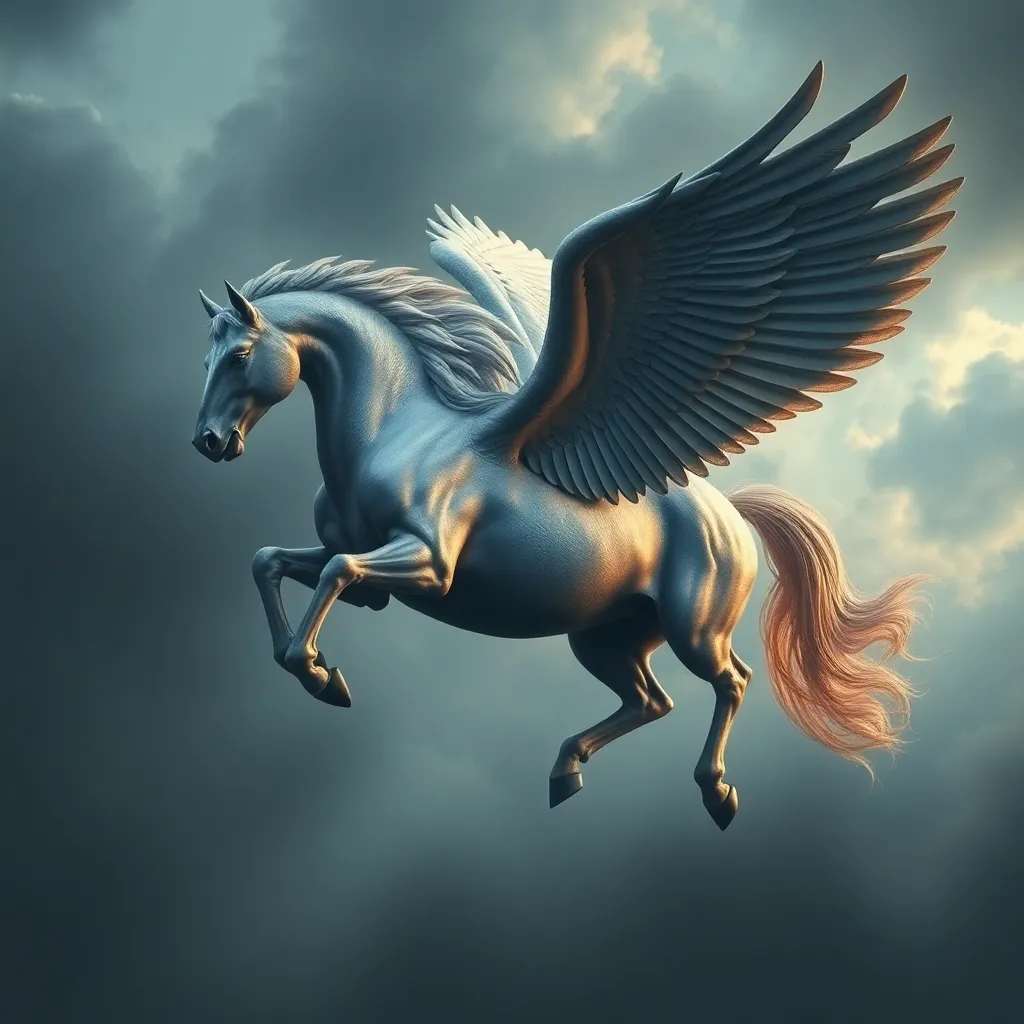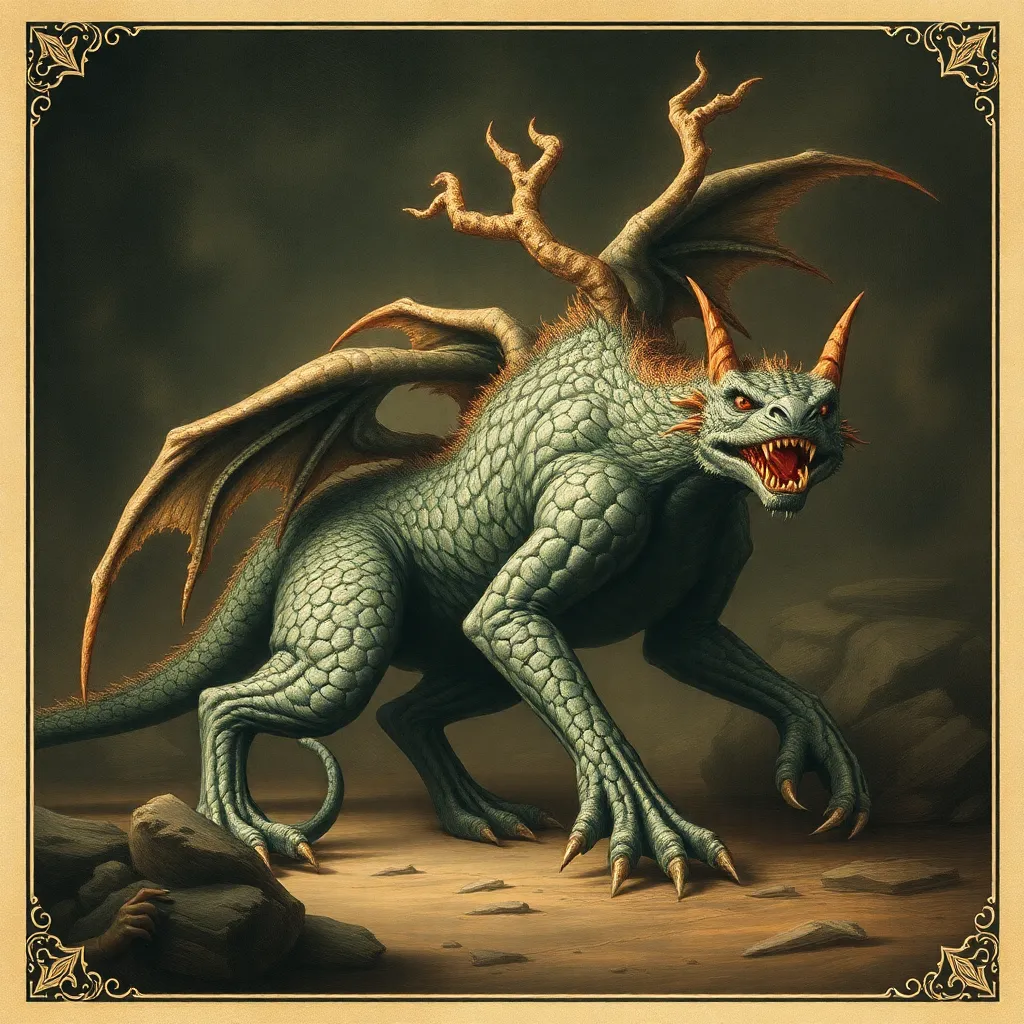The Hero’s Mount: Exploring the Symbolical Meaning of Pegasus as a Force of Power and Freedom
I. Introduction
Pegasus, the majestic winged horse of Greek mythology, has long captured the imagination of artists, writers, and dreamers alike. Born from the blood of Medusa, Pegasus is not just a creature of beauty but also a symbol imbued with deep meaning. Mythological figures often represent complex themes, and Pegasus stands out as an emblem of both power and freedom. This article aims to delve into the rich tapestry of symbolism surrounding Pegasus, exploring its significance in literature and art as a representation of these two potent forces.
II. The Origins of Pegasus in Mythology
Pegasus’s origins are steeped in myth. He was born from the blood of the Gorgon Medusa when she was slain by the hero Perseus. This connection places Pegasus in a lineage intertwined with the themes of heroism and tragedy.
- Birth and lineage of Pegasus: Pegasus is often depicted as the offspring of Medusa and Poseidon, the god of the sea, which symbolizes the dual nature of his character—both terrestrial and celestial.
- Connection to Greek mythology: Pegasus plays a significant role in various myths, notably in the tales of Bellerophon, who rides him to defeat the Chimera.
- Role in the stories of heroes: Through Bellerophon, Pegasus embodies the heroic journey, aiding in the triumph over formidable foes.
III. Pegasus as a Symbol of Power
Pegasus is often viewed as a representation of strength and might. His very form—powerful, graceful, and capable of flight—evokes a sense of grandeur and authority.
- The representation of strength: The image of a winged horse soaring through the skies serves as a powerful metaphor for overcoming obstacles and achieving greatness.
- Pegasus in battle: As the mount of heroes, Pegasus symbolizes the might necessary to confront and conquer evil.
- Transformation into a constellation: After his death, Pegasus was transformed into a constellation, a testament to his enduring legacy and the power he represents in the heavens.
IV. Pegasus as a Symbol of Freedom
Beyond power, Pegasus also embodies the essence of freedom. His ability to fly symbolizes liberation from earthly constraints.
- The association of flight with liberation: The act of flying is often seen as a metaphor for breaking free from societal norms and expectations, embodying the spirit of adventure.
- Pegasus as a representation of transcendence: His flight into the skies signifies a transcendence of the mundane and a connection to the divine.
- Cultural significance of freedom: Across various cultures, the image of a flying horse has been associated with the yearning for freedom and the quest for self-discovery.
V. Artistic Representations of Pegasus
The artistic representations of Pegasus are vast, illustrating his significance throughout history.
- Depictions in ancient art: From vase paintings to sculptures, ancient Greeks celebrated Pegasus, often illustrating him alongside heroes.
- Modern interpretations: In contemporary literature and film, Pegasus continues to inspire, from fantasy novels to animated films.
- Evolving symbolism: The symbolism of Pegasus has transformed over time, adapting to new cultural contexts while retaining its core essence of power and freedom.
VI. Pegasus in Popular Culture
Pegasus has made iconic appearances in various forms of popular culture, solidifying his status as a cultural icon.
- Influence on modern storytelling: Pegasus is often featured as a symbol of hope and strength in modern narratives, appealing to audiences across generations.
- Iconic appearances: From Disney’s “Hercules” to video games like “God of War,” Pegasus continues to capture the imagination of creators and audiences alike.
- Enduring legacy: The legacy of Pegasus endures as he remains a popular figure in art, literature, and media, representing the timeless themes of power and freedom.
VII. The Intersection of Power and Freedom in Pegasus
Pegasus uniquely embodies the balance between strength and liberty, making him a profound symbol in philosophical discourse.
- Balance between strength and liberty: The duality of Pegasus’s nature—both powerful and free—challenges us to consider the relationship between these two forces.
- Philosophical implications: The presence of Pegasus in stories often invites reflection on the nature of heroism and the responsibilities that come with power.
- Resonance in today’s society: As discussions surrounding power and freedom continue to evolve, the symbolism of Pegasus invites contemplation on how we navigate these themes in our own lives.
VIII. Conclusion
In summary, Pegasus serves as a powerful symbol of both might and liberation, deeply embedded in the fabric of mythology and art. His legacy as a hero’s mount reflects our understanding of heroism, as well as the eternal quest for freedom. As we continue to explore the significance of Pegasus in contemporary discourse, it becomes clear that his image will endure, reminding us of the timeless interplay between power and freedom in our lives.




